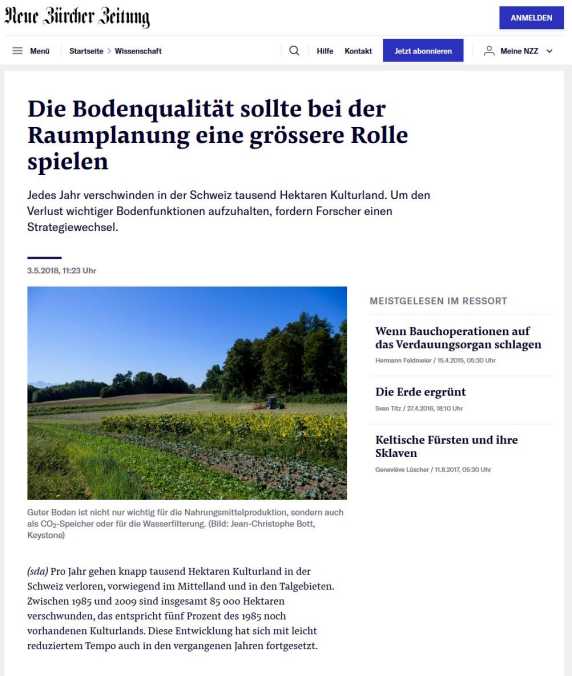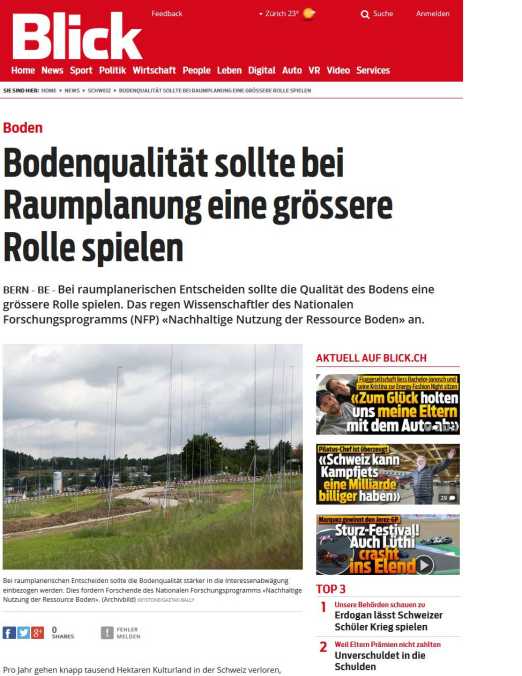The importance of soil quality in spatial planning was investigated within the NRP68 and is now covered by the Swiss media
Prof. Grêt-Regamey gave an interview to the Swiss press and radio on the importance of soil quality assessments in spatial planning and its incorporation in the legislation.
Soil is continuously lost to settlement and infrastructure development. The speed and scope of this process in Switzerland has important impacts on soil benefits to humans. Besides providing important land for agricultural production, soil provides many other human benefits from carbon storage, regulation of water run-off, flood protection and recreation among many others.
Prof. Grêt-Regamey explains how a creation of a soil index point system based on quality (based on the multiple functionalities and services provided by soil) makes “quality” tangible and provides a pragmatic solution for its prioritization. An index points’ system can help provide information on where re-zoning or building would have the least impact on soil quality and identify areas of restoration and compensation for new developments.
"Such a system can be used to maintain soil quality over the long term," says Adrienne Grêt-Regamey of ETH Zurich in the communication. At cantonal level, for example, a limit could be set that specifies the maximum tolerable consumption of soil index points in a specified time.
The articles was published in Newspapers like: NZZ, Blick, SWI SwissInfo, etc. Find here the link to the press article from external page NZZ and to the broadcast in the external page radio (both versions in German).
Press


